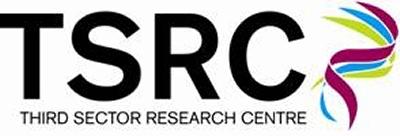Voluntary organisations working with deprived groups most likely to be reliant on public sector funding
New research from TSRC reveals which parts of the third sector rely most heavily on public sector funding streams.
The research shows that the proportion of third sector organisations receiving some public funding is larger than previously thought. 36% of third sector organisations, approximately 61 000, receive income from statutory sources. 23,000 organisations (13%) consider public sector sources of income to be their most important.
The research shows that organisations working in particularly deprived areas, and with particular disadvantaged groups, are more likely to rely on public sector income. In seven local authorities, up to 25% of third sector organisations regard public sector income as their most important source. These tend to be among the more disadvantaged areas of the Midlands and the North. In both Nottingham and Knowsley, for example, the proportion could be as high as 30% of all organisations.
The proportion of organisations receiving public funds also shows intriguing contrasts with the distribution of registered charities. The proportion of organisations that receive public funding appears to be greatest in areas that have fewer third sector organisations overall. Related to this, recently established organisations are more likely to rely on public funding.
Public funding levels were also higher among organisations working with particularly disadvantaged groups. Over 50% of organisations who characterised themselves as working with people with mental health needs or learning difficulties, with offenders or ex-offenders, victims of crime, the homeless, asylum seekers, and refugees, receive some public funding. Statutory sources are the most important income stream for 26% of organisations working with victims of crime or people with learning difficulties. They are the most important source of income for 31% of organisations working in the area of mental health.
John Mohan from TSRC said ‘We have conducted a systematic local and regional breakdown of the funding received by third sector organisations, based on analysis of the largest survey of its kind. This research shows that some parts of the voluntary sector are much more likely than others to be reliant on statutory income sources. This is particularly the case for organisations working with disadvantaged groups, and for organisations working in disadvantaged areas.’
'There is also some evidence that organisations which receive public funding reported that they had lower levels of reserves than comparable voluntary organisations, and that they tended to have been established fairly recently. It's important that funders of third sector organisations are aware of these patterns in a context of diminishing public resources.'
